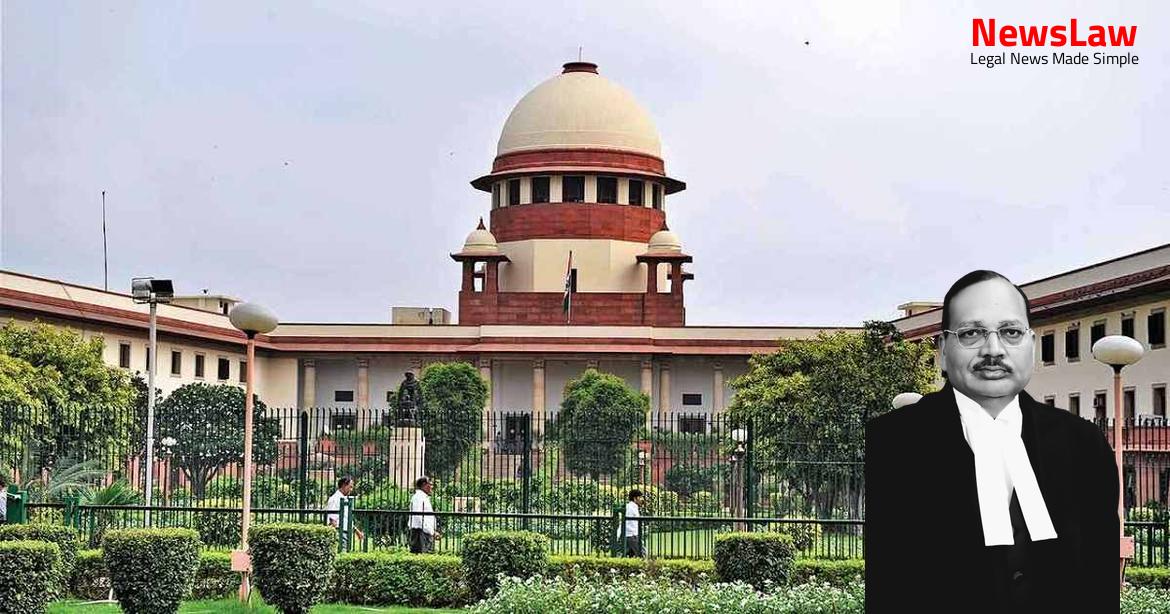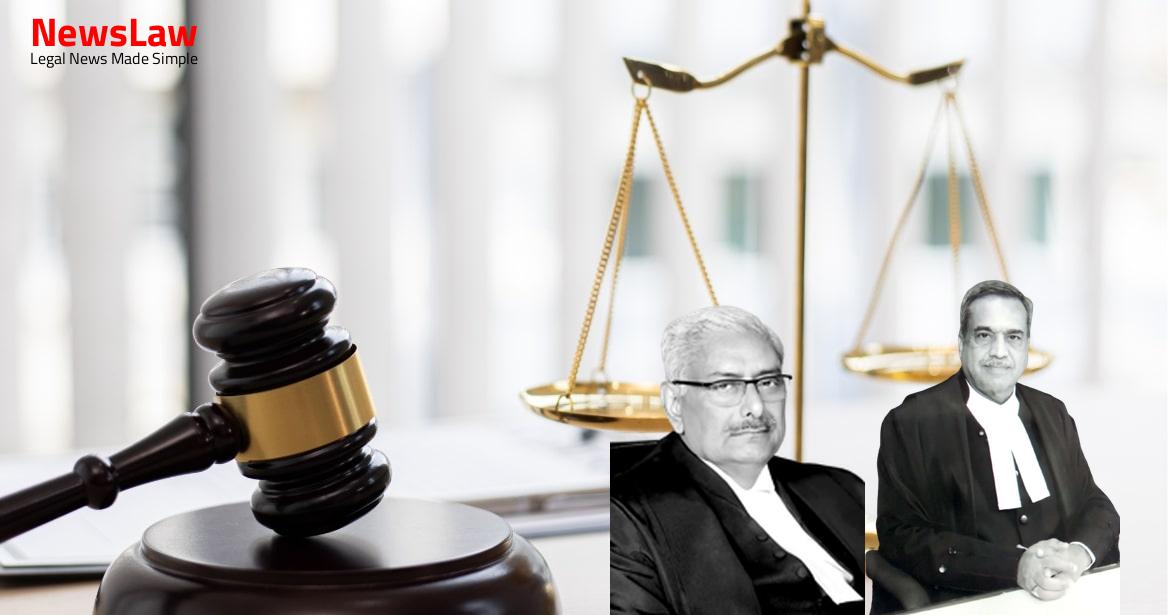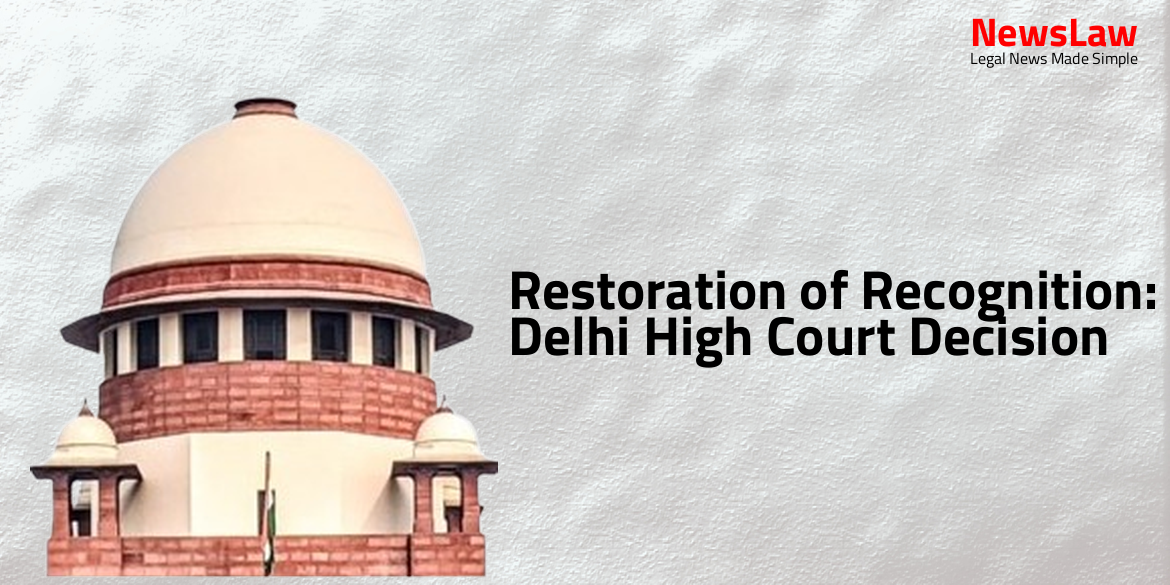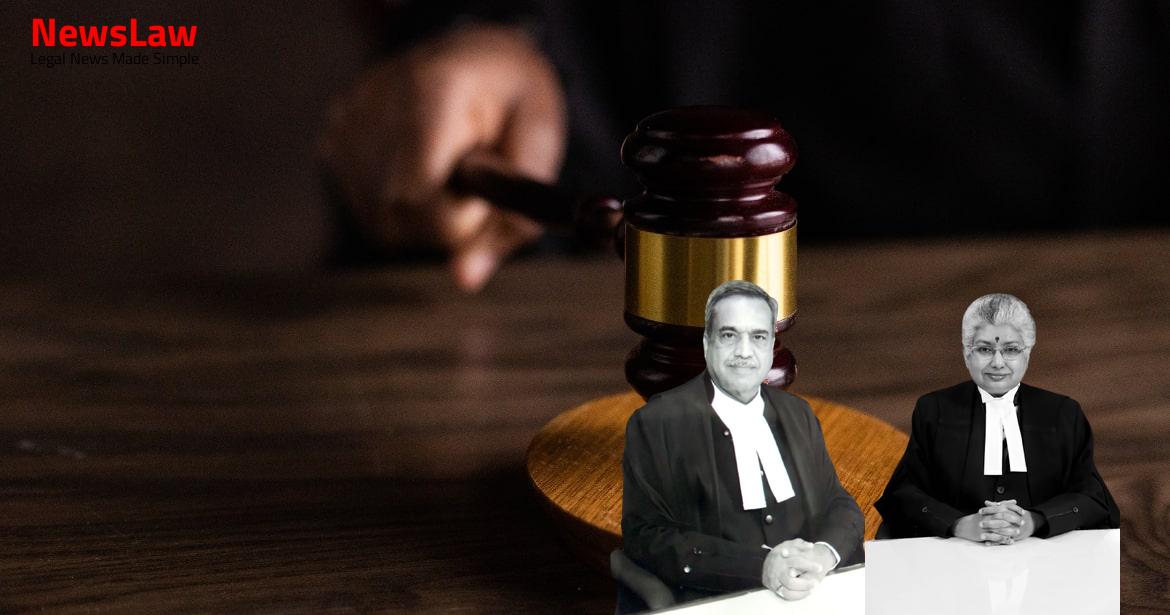In a recent legal case, the High Court showcased a commitment to fairness and justice through its analysis. The court highlighted the significance of equitable treatment and the avoidance of technicalities to deny legitimate claims. Let’s delve into the details of how the court upheld these crucial legal principles.
Facts
- Appellant deposited Rs.15,00,000/- as one-fourth amount of auction with Government treasury on 3.1.2012.
- Appellant also deposited Rs.1,19,500/- towards environmental cost and Rs.1,23,085/- towards income tax.
- Despite depositing the entire amount, the appellant was not put in possession of the sand block.
- Appellant’s bid of Rs.59,75,000/- was the highest and he was awarded the tender.
- Total deposit made by the appellant was Rs.62,26,085/- towards allotment of sand block.
- Appellant approached High Court through Writ Petition No 8708 of 2017 after receiving no response.
- High Court declined to entertain the petition citing involvement of questions of facts.
- Appellant made a representation to the Revenue Minister, Government of Maharashtra for refund of auction amount.
- Tehsildar and Sub-Divisional Officer submitted reports pointing out the factual position.
- Appellant deposited remaining auction amount of Rs.44,83,500/- on 16.1.2012.
- Collector sought a report from Tehsildar after receiving appellant’s representation.
- Further correspondences took place and State Government rejected appellant’s prayer for refund of auction amount.
- Agreed quantity of excavation was 8500 brass.
Also Read: Interpretation of Parliamentary Privileges: Immunity from Prosecution for Bribery
Analysis
- The High Court has the discretion to entertain a writ petition based on the facts of the case.
- The court can entertain a writ petition even if it involves disputed questions of fact or arises from a contractual obligation.
- The power to issue prerogative writs under Article 226 of the Constitution is plenary and not limited by other provisions.
- In cases where the action of the State or its instrumentality is arbitrary and violative of Article 14, the High Court can exercise its power under Article 226.
- Writ petitions involving a consequential relief of monetary claim are maintainable.
- The denial of a refund to the appellant by the respondents was unreasonable based on the admitted facts.
- Legal principles regarding the maintainability of a writ petition in contractual matters were discussed in the judgment.
- The State government is expected to act as a virtuous litigant and prioritize honest claims and substantial defense over technical legal points.
- If a case is weak on merits, the Government should be willing to settle disputes regardless of prestige or other motivations that drive private parties to fight in court.
- Governments and statutory authorities are advised to be model litigants and avoid false, frivolous, or vexatious contentions that obstruct justice.
- The High Court has the power to entertain a petition under Article 226 of the Constitution even if there are disputed facts, as long as elaborate evidence is not necessary.
- Government and public authorities should refrain from relying on technical pleas to defeat legitimate claims, unless the claim is not well-founded.
- Fair and just treatment to citizens is essential, without resorting to technicalities to defeat their legitimate claims.
- The appellant, despite being the highest bidder and depositing the auction amount, was deprived of possession of the sand block due to reasons beyond his control.
- State Government should not take up technical pleas to deny citizens their just claims, especially when tax or revenue collection is not at stake.
Also Read: Legal Analysis on Arbitration Petition Limitation Period
Decision
- Respondents directed to refund entire amount received from the appellant
- Interest at the rate of 6% per annum to be paid from the date of first refund request till realisation
- No order as to costs
- Impugned order of the High Court dated 6.8.2018 is set aside
- Appellant allowed to get refund of amount deposited
- Appeal is allowed
Also Read: Analysis of High Courts’ Jurisdiction and Court Orders Under Article 142
Case Title: POPATRAO VYANKATRAO PATIL Vs. THE STATE OF MAHARASHTRA (2020 INSC 183)
Case Number: C.A. No.-001600-001600 / 2020



